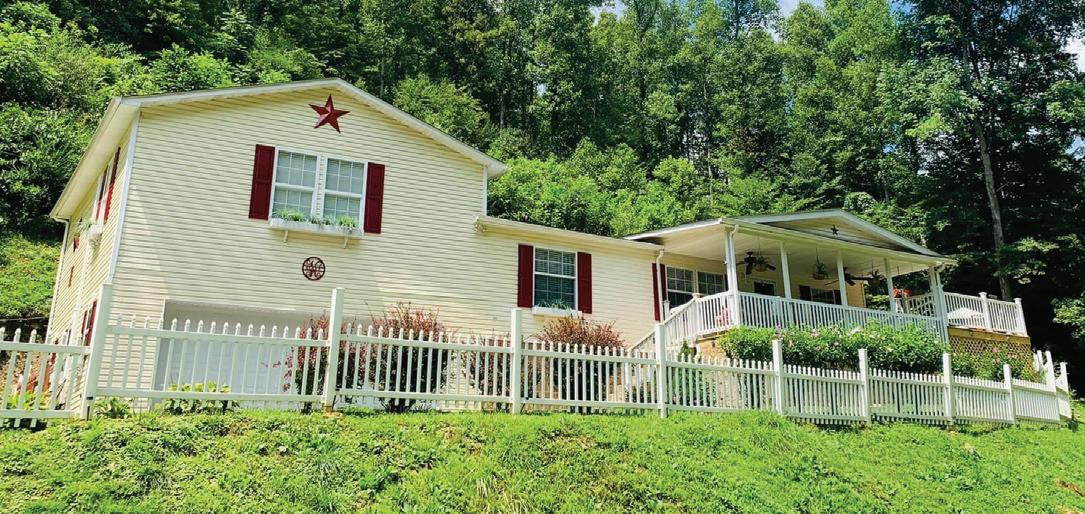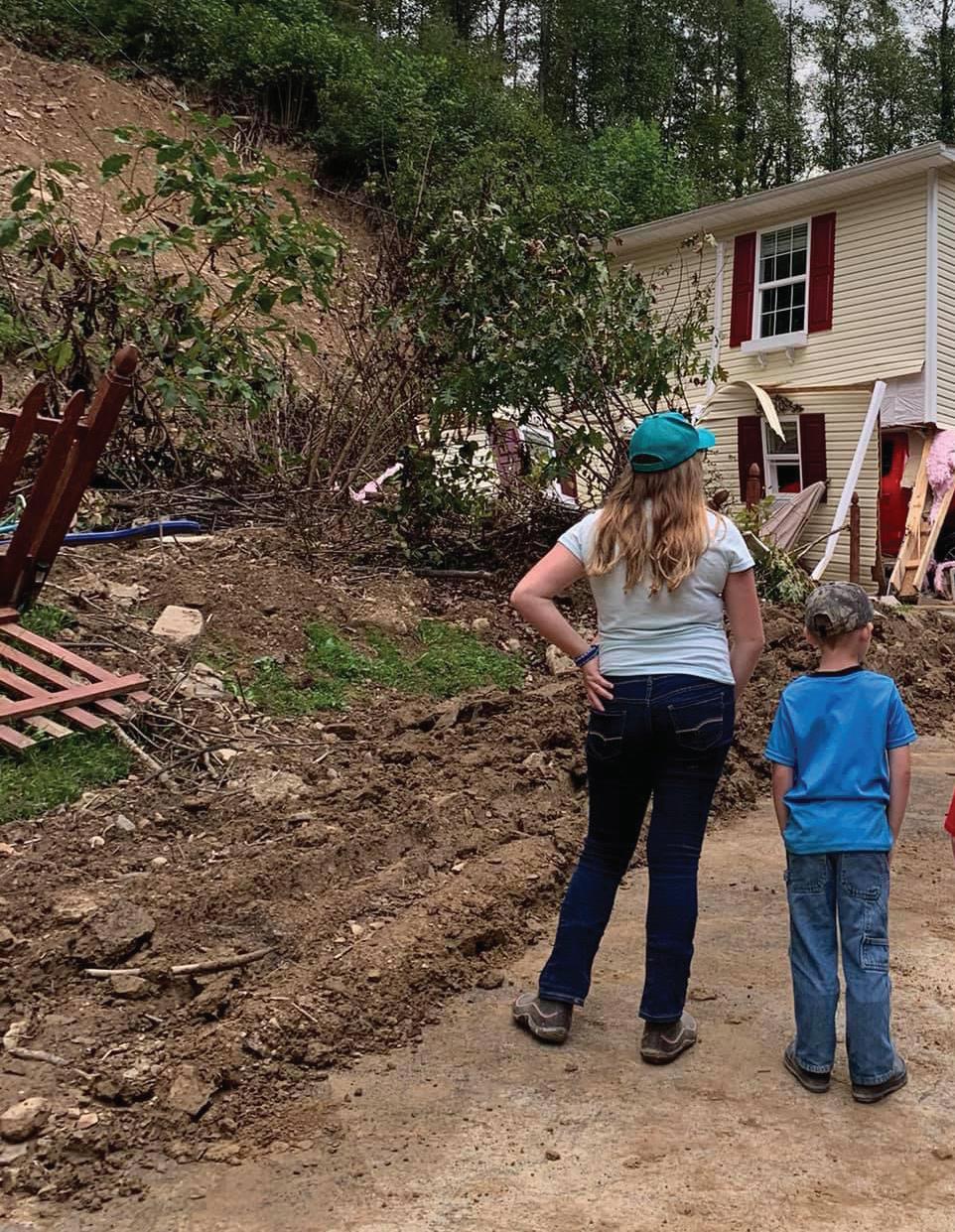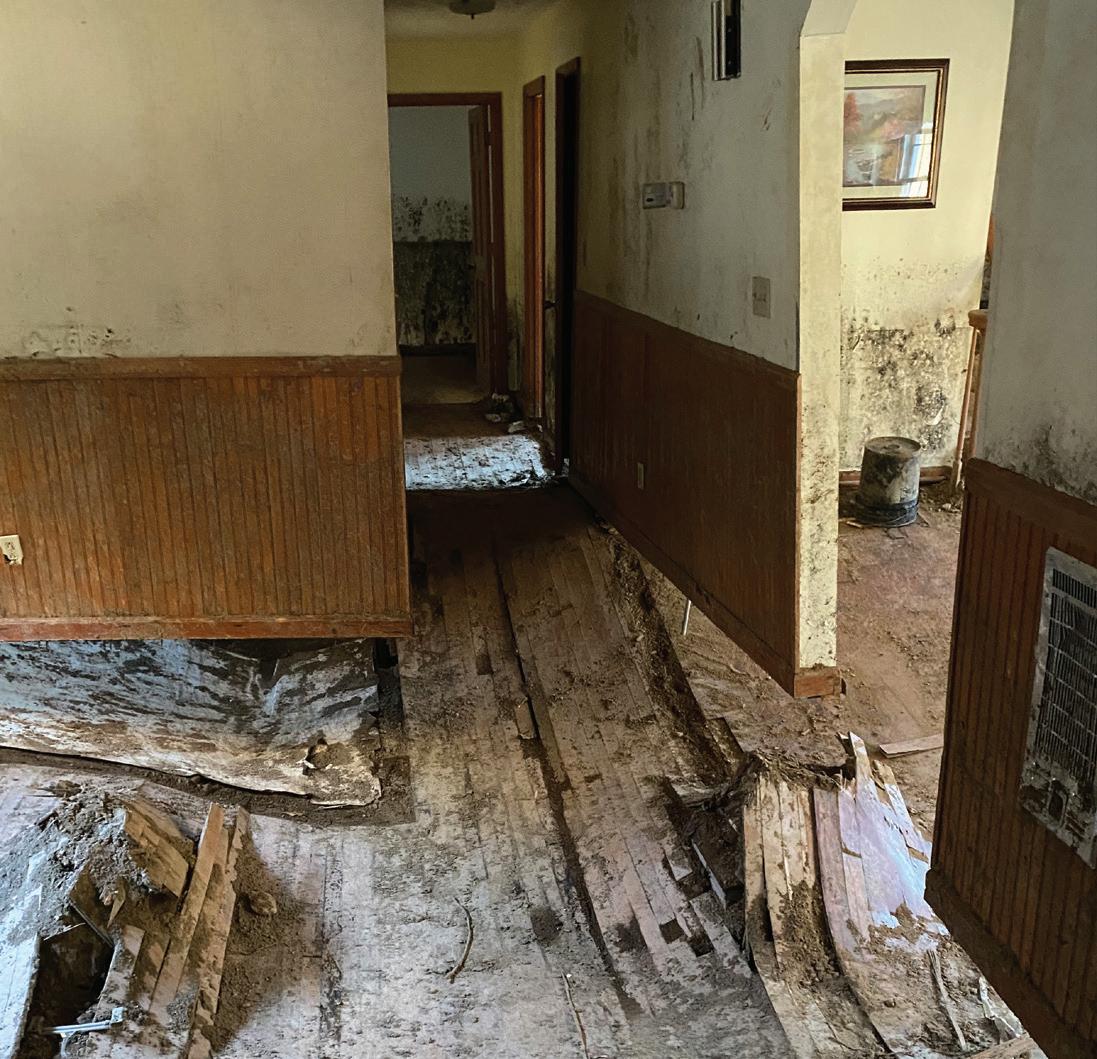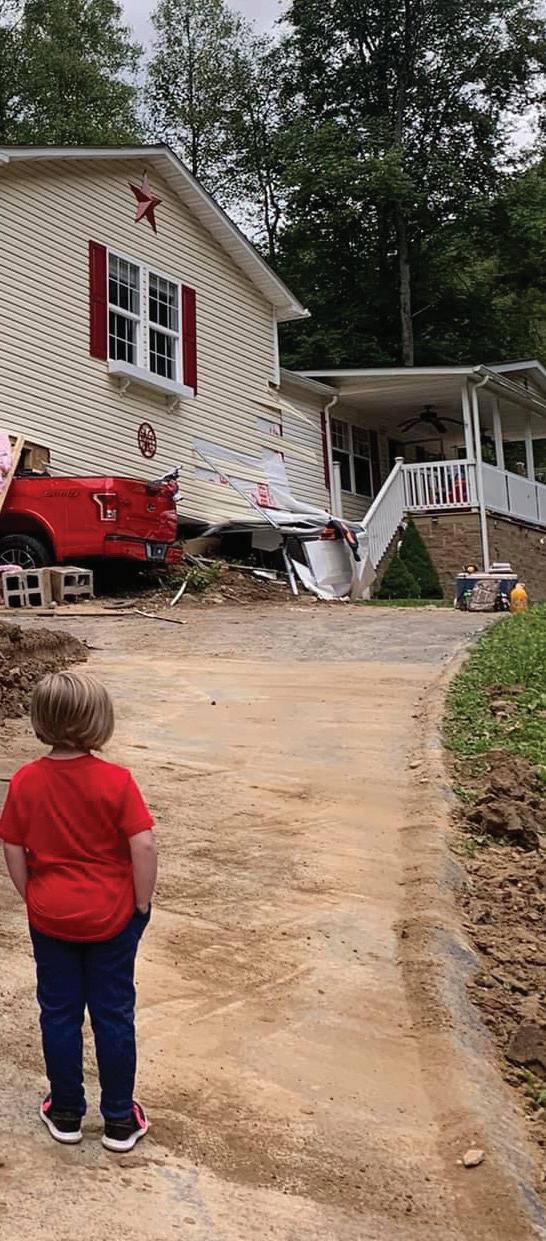
3 minute read
BGAV Disaster Response Update from Hurley, VA
The “after” photo of a house repaired by Disaster Response teams in southwest Virginia.
by Glenn Maddox
In Disaster Response (DR), a common saying is, “All disasters are local.” BGAV DR’s current response in a small town in southwest Virginia is revealing that statement to be accurate, as local churches are taking the lead in restoring hope to their neighbors in a nearby community.
After torrential rains brought severe flooding and destroyed over 100 homes and dozens of bridges in Hurley, VA, this summer, community members had a hundred different challenges all at once. The state approved emergency support for Hurley, but FEMA denied the application for individual assistance because the “impact to the individuals and households…was not of such severity and magnitude to warrant the designation of Individual Assistance.” The guidelines FEMA uses in evaluating requests for assistance often work against small communities. So while the community appeals the decision, people are living in flood-damaged homes or living with family until their homes are repaired. But as they wait with hope of support they may never receive, donors and volunteers are filling the gap. Add to the mix the challenges of responding during a pandemic, and the response has been truly miraculous.

Family members assess the damage to their house from catastrophic flooding in southwest Virginia.
Without FEMA support, the community’s Long-Term Recovery Group is moving ahead with repairs and fundraising efforts to cover the costs. The United Way is handling recovery funds and has already nearly reached their donation goal of $500,000, thanks to gifts from Food City, a local foundation, the local hospital, inmates at Pocahontas State Correctional Center, and individual donors.
Virginia Baptist churches and volunteers have been heavily involved in the response as well. Almost immediately after the flood waters receded, Grundy Baptist Church was opening their doors to volunteers for feeding at the shelter in Hurley and have remained the base of operations for VBDR volunteers to serve during cleanup and rebuild. Butch Meredith, VBDR construction coordinator, has spent significant time in Hurley assessing homes for repair and ensuring volunteers are able to safely restore homes. But a lot of the heavy lifting has been local church response. Southwest Virginia churches like Rosedale Baptist and First Baptist Church of Nickelsville have worked tirelessly to help their neighbors return to their homes. Volunteers have come from across the state to serve— some returning multiple times. And churches and individuals from across the state have given over $30,000 to support the response.

Each disaster shows us again the truth that “all disasters are local.” With Covid limiting the ability of volunteers to respond, we are even more aware of the local nature of disasters now. Local churches that were prepared to serve have been able to do more than anyone might have expected, with the support of a few volunteers from other communities filling in gaps. The people of the community are resilient and are working to restore what was lost. BGAV DR is grateful for the churches and individuals coming alongside them to help them return to their homes.
If you would like to support rebuild efforts in Hurley, visit BGAVDR.org.
If you would like to help your church prepare to respond locally or wherever disasters strike, join us for training at Mission Matters, March 5 in Richmond. Register online at BGAV.org/events. Group rates available for churches.

Family members assess the damage to their house from catastrophic flooding in southwest Virginia.
Glenn Maddox is BGAV’s National Mission Director.









